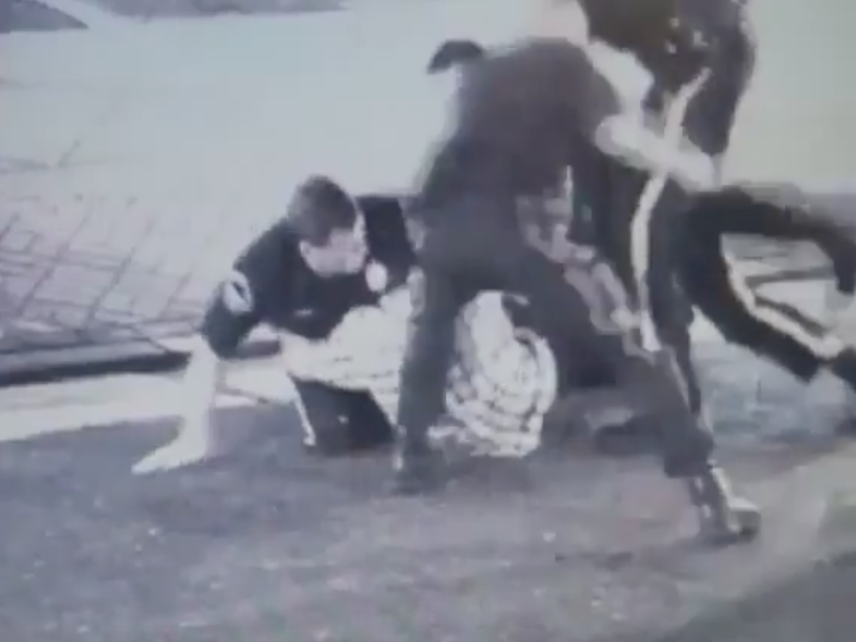Police Wrongdoing Cost New Jersey Taxpayers $42 Million in the Last 10 Years
In scores of secret settlements, local governments have sought to hide cops' crimes and brutality.

Local governments in New Jersey have had to pay out more than $42 million over the last 10 years because of police criminality and abuse, according to a new series of investigative reports by the Asbury Park Press. The paper found at least 19 deaths, 131 injuries, and 7 sexual assaults that resulted in settlement payouts. Many of the officers involved remain on duty.
Atlantic City, for example, has paid to settle five separate lawsuits arising from brutality allegations against patrol officer Sterling Wheaten, who remains on the force, where he has been the subject of at least 15 other excessive-force complaints. The former police chief of Bordentown Township is facing federal criminal charges for hate crimes and civil rights violations, but he was paid $54,000 upon his resignation. Another officer enlisted gang members to help him stalk a woman he wanted to have sex with.
The Park Press' exhaustive reporting is full of such stories of individual officers acting egregiously. But it also shows the systemic failures that have allowed such behavior to continue undiminished. Serious oversight and accountability mechanisms are weak or nonexistent in police departments across New Jersey. Some internal affairs divisions performed only the most cursory investigations, or failed to account for obvious conflicts of interest. A brutality complaint against Atlantic City officer Andrew Jaques, whose conduct has resulted in two settlements, was investigated by his uncle. Whistleblowers face rampant retaliation.
Even when departments do try to fire or discipline officers, it's often prohibitively difficult or expensive to do so. Backed up by protective laws and by police unions willing to spend large amounts on litigation, cops facing termination can sue to keep or regain their jobs, imposing significant costs on the jurisdictions trying to get rid of them.
"In scores of lawsuits, the pattern is the same," the newspaper says. "Towns routinely take the path of least resistance, at taxpayer expense, to minimize their liability….Millions of taxpayer dollars are spent, nobody admits wrongdoing and officers accused of misconduct often remain in place."
New Jersey is one of only five states that lack a statewide professional standards authority for law enforcement officers. The Asbury Park Press points out that this alows problem cops to bounce between the state's 466 local departments. In other parts of the U.S., a domestic violence arrest, a sustained misconduct allegation, or a failed psych exam might lead to an officer being decertified to work in law enforcement across the state. Not so in Jersey, where in addition to cash payouts, settlements with terminated officers often include agreements not to disclose disciplinary histories or misconduct allegations to other departments where the officer might seek employment.


Show Comments (35)